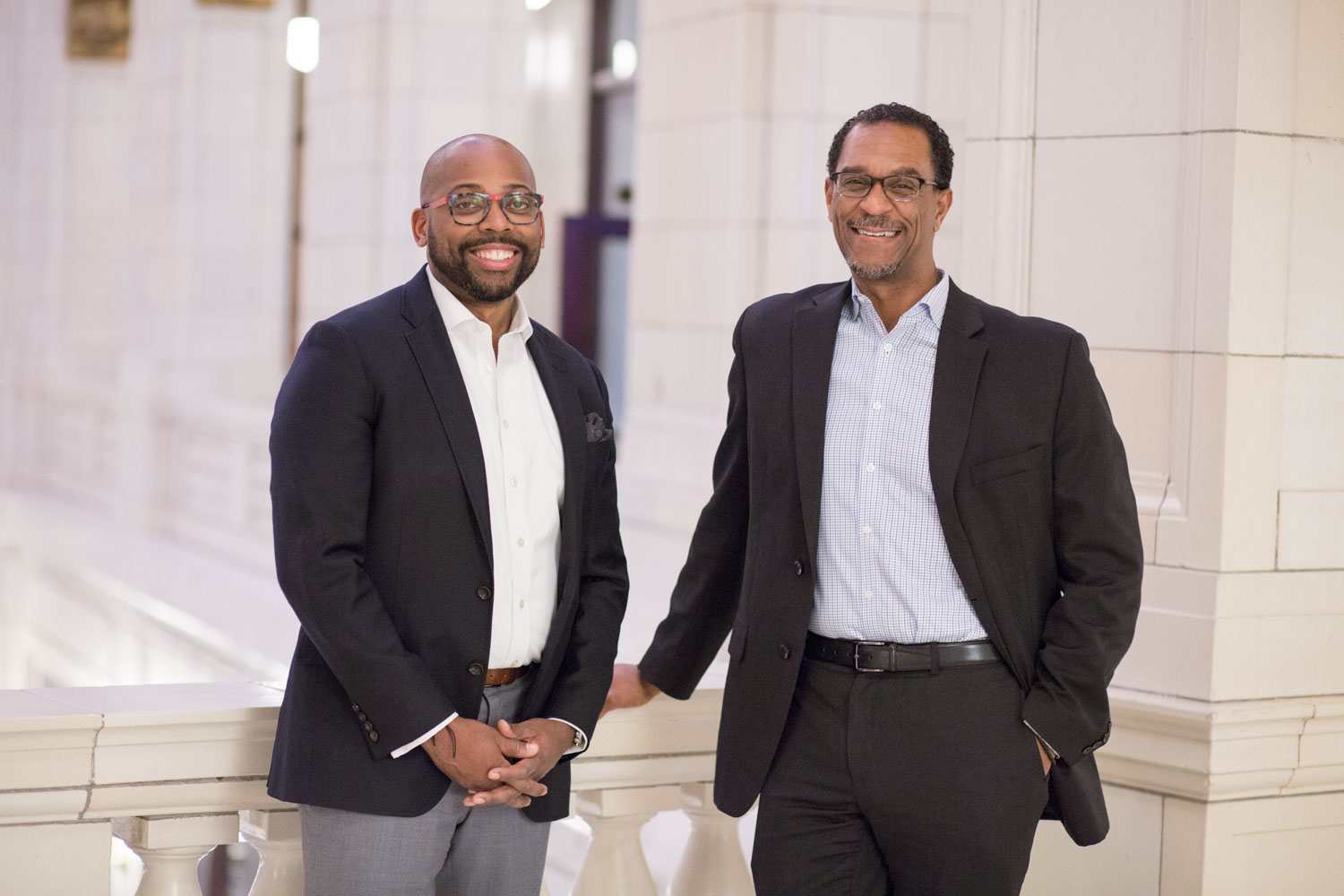By Ellis Carr, President and CEO, and Dan Varner, Board Chair
Looking back at our journey through 2018, both as an organization and as a country, it is no surprise to us that Merriam-Webster’s “word of the year” was justice. The meaning and implications of justice were central to important conversations taking place in communities across the United States.
While we are pleased to see attention brought to this critical topic, justice – or the lack thereof – is an issue that we have wrestled with for decades. Indeed, we reflected on this very issue when comparing 1968 and 2018.
That is why justice – racial, social, economic – is core to our own mission and is a critical conversation that we seek to drive every day through our work.
For many years, we sought to advance justice by supporting projects and facilities that created access to a wide range of social services. Despite surpassing $2.7 billion in investments throughout our history, we continued to witness an increasing gap between need and progress. In addressing that gap, we saw an opportunity to expand our focus and invest in efforts that help amplify the ability for individuals and communities to access long-denied resources and break down systemic barriers to determine success for themselves.
This meant thinking differently about the meaning of the word “assets,” not just financing and property, but the strong assets that each community brings to bear when given the opportunity.
Changing Systems through Listening, Learning, and Sharing
In doing so, we doubled down on efforts to engage our network of partners, community leaders, and practitioners. By hearing directly from them, we learned not only about what communities need, but what they are already doing that is working and can be amplified to accelerate the pace of change.
With Mission: Launch, we convened a broad range of stakeholders to better understand the role that financial institutions can play in improving the financial stability and prosperity of individuals living with criminal records, or returning citizens.
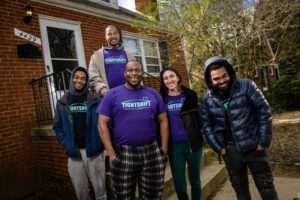
Juan Reid founded Tightshift Laboring Cooperative, which provides moving, cleaning, and landscaping services while offering other returning citizens a chance for work and housing.
In our Annual Report, you will meet Juan, an individual who encapsulates this opportunity. With the right support, he founded his own business, creating new opportunities for himself and other returning citizens.
Building on this approach, we hosted a convening of food and justice leaders to look beyond increasing access to healthy foods to actually building more just and equitable food systems.
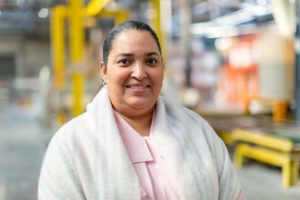
Worker cooperative conversions give workers the chance at a living wage, favorable work conditions, and wealth building.
Similarly, we explored how the cooperative model can help workers become “worker-owners,” creating new pathways to economic opportunities that amplify communities. A link to our report can be found later in this report.

Hannah and her housemates are able to maintain affordable housing in an ever more expensive city through the cooperative model.
You will also experience how social worker Hannah Frankel helped to found a unique housing cooperative in Austin, Texas, where residents manage the property in exchange for affordable rents. This group prides itself on adhering to principles of equity and inclusion, and Hannah calls it one of the most racially diverse and democratically run cooperatives she has ever been part of.
Seeds of Change Bearing Fruit
While these are all conversations that will continue into 2019 as we examine the role that Capital Impact can play in these important movements, we are also proud of the outcomes we supported in 2018.
For example, in New York, Make The Road is building a new facility to enable large groups to gather to advocate for fair services and policies for immigrants in New York and beyond. In Texas, Serve Denton’s new hub will co-locate several nonprofits with a range of mission-related focus areas into a low-cost centralized space to anchor the local community. In a transitional California border neighborhood, Casa Familiar is creating a community-centric space where families, including immigrants, have access to job training, housing, and a community center.
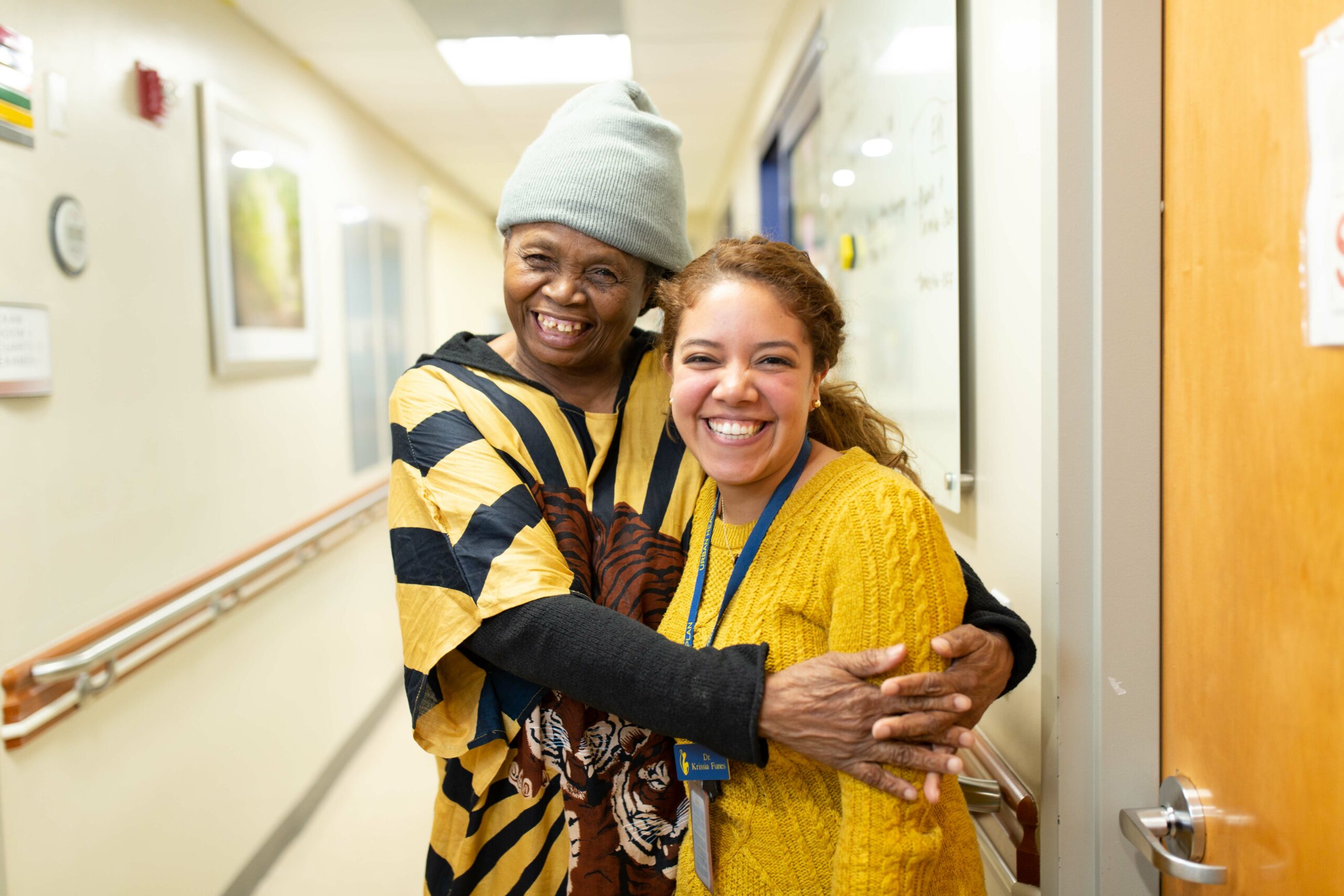
Clinical Pharmacist Krissia Funes and her co-workers at Urban Health Plan are ensuring that older adults in New York have quality, holistic health care that keeps them in their communities.
Clinical Pharmacist Krissia Funes of Urban Health Plan in New York is developing ways to better support the city’s rapidly growing population of older adults. Their innovative “layered” model of care for older adults focuses not only on the patient’s physical health, but also supports their ability to stay engaged in their community.
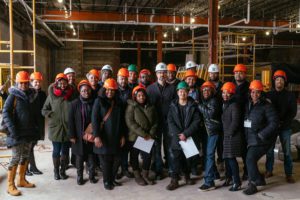
To better ensure that Detroit’s pool of real estate developers truly reflects the city’s diversity, Capital Impact created the Equitable Development Initiative to help minority real estate developers participate in revitalization efforts across the city.
Lastly, our Equitable Development Initiative in Detroit set out in 2017 to help developers of color in Detroit participate in the city’s revitalization through training, mentorship, and access to capital. Just a year later, we are now financing two participants launching projects in Detroit. We look forward to supporting a new cohort in 2019 as well as expanding the program to other cities.
Joining Us to Stand Shoulder-To-Shoulder with Communities
In another effort to create new avenues for those who want to join us in expanding opportunity and inclusion, we created the Capital Impact Investment Note. We are so incredibly proud of your response to this offering. With your support, we mobilized more than $100 million by the end of 2018.
You can hear first-hand from financial adviser Andy Loving, who sat down with us to describe the immense impact of the Note and why he recommends it to his clients across 25 different states. It is a true testament to the individuals and large institutions who want to build portfolios that reflect their values.
Knowing that so many of you want to join us in standing shoulder-to-shoulder with communities further fuels the passion behind our mission.
Heeding the Call of Justice in 2019
Listening. Learning. Creating tangible outcomes. Expanding the opportunities to engage others in our work.
All of these components are critical as we work to develop better-integrated and more accessible support systems that are built from the ground up. As we move through 2019, we will continue to work to understand and support the intrinsic strengths and unique characteristics of neighborhoods.
To that end, we will continue to foster deeper connections with communities in specific regions, including northern and southern California, Michigan and the Great Lakes, New York, Texas, and Washington, D.C.
We fundamentally believe that the combination of launching tailored initiatives and loan programs, convening leaders, and sharing knowledge and experiences with policy makers is the way to uplift the financial and human assets that drive social and economic justice.
None of this is possible without the support of so many of you, the willingness of community organizations to work with us to amplify assets that help our country create more equity and remain focused on critical issues of social and economic justice. We are truly humbled.
